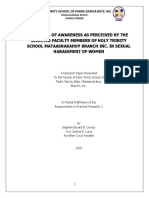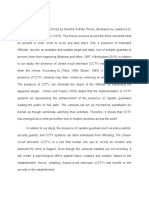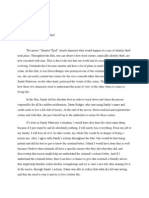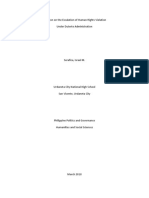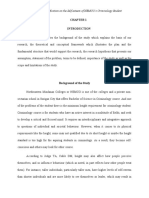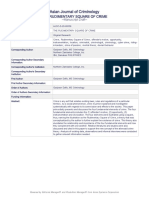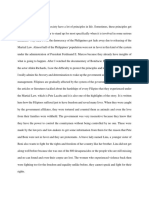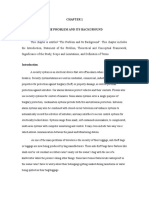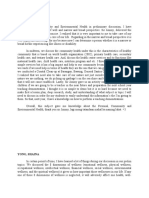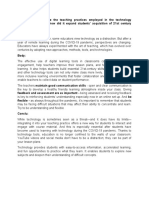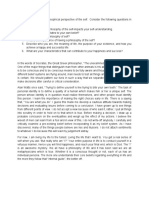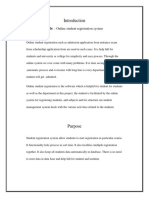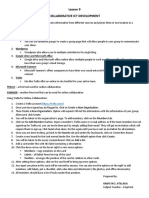100% found this document useful (3 votes)
9K views6 pagesReflection Paper
The Cybercrime Prevention Act of 2012 (Republic Act No. 10175) aims to address legal issues concerning online interactions and the internet in the Philippines. It establishes standards for acceptable online behavior and socio-legal sanctions for cybercrimes like child pornography, illegal recruitment, and cyber libel. The law provides rules for internet conduct, criminal procedures for cybercrimes, and aims to prevent harm to individuals from these crimes. It also helps investigate and prosecute crimes committed online.
Uploaded by
Keana Marie LegaspiCopyright
© © All Rights Reserved
We take content rights seriously. If you suspect this is your content, claim it here.
Available Formats
Download as DOCX, PDF, TXT or read online on Scribd
100% found this document useful (3 votes)
9K views6 pagesReflection Paper
The Cybercrime Prevention Act of 2012 (Republic Act No. 10175) aims to address legal issues concerning online interactions and the internet in the Philippines. It establishes standards for acceptable online behavior and socio-legal sanctions for cybercrimes like child pornography, illegal recruitment, and cyber libel. The law provides rules for internet conduct, criminal procedures for cybercrimes, and aims to prevent harm to individuals from these crimes. It also helps investigate and prosecute crimes committed online.
Uploaded by
Keana Marie LegaspiCopyright
© © All Rights Reserved
We take content rights seriously. If you suspect this is your content, claim it here.
Available Formats
Download as DOCX, PDF, TXT or read online on Scribd
/ 6








